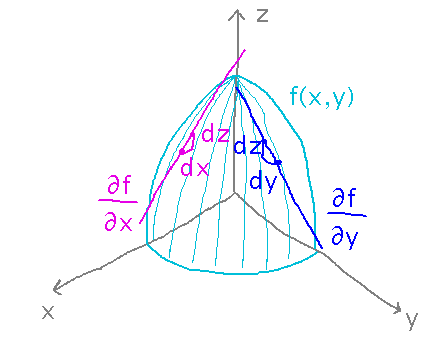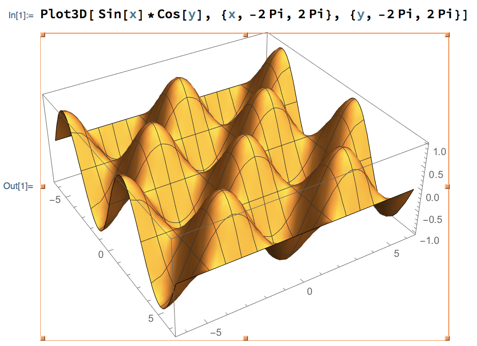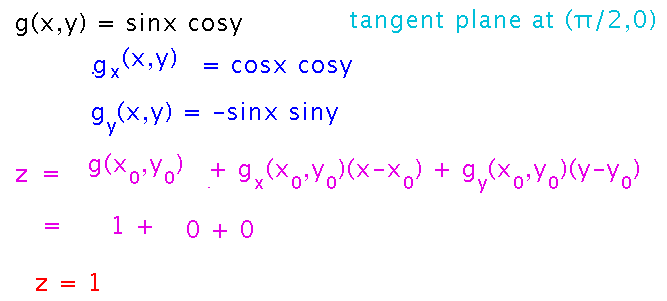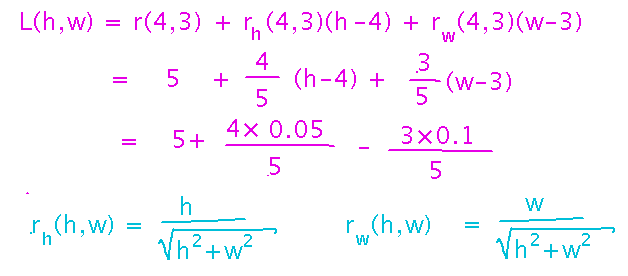Questions?
The proof of the tangent plane equation refers to lines/vectors parallel to the xz and yz planes. Why those planes?
Because that’s what partial derivatives give you easily: the derivative with respect to x shows how z changes as x changes and y doesn’t, so gives you the slope of a tangent line parallel to the xz plane. The derivative with respect to y shows how z changes as y changes and x doesn’t.

Tangent Planes and Linear Approximation
Section 13.4 in the textbook.
Key Points
The equation for a tangent plane.
The equation for linear approximation (which is really the tangent plane equation).
“Tangent plane” is the set of all tangent lines at a point.
Tangent Planes
Let g(x,y) be the “egg carton” function g(x,y) = sin x cos y:

Find an equation for the tangent plane to g(x,y) at (π/2,0). Find the derivatives and plug them, along with g(π/2,0), into the tangent plane formula:

Having done that work, you can reuse it to find a more interesting tangent plane, e.g., at (π/4,π/4):

This one can at least be put into a form that looks like the typical plane equations from a month ago.
Linear Approximation
Consider the function that gives you the length of the diagonal of a rectangle in terms of the rectangle’s width and height:

Estimate how long the diagonal is when h = 4.05 and w = 2.9. This is a pain to calculate precisely because of the square root, but easy to calculate for h = 4 and w = 3. Using that and the linear approximation formula gives...

Next
Wednesday: video class meeting via Blackboard Collaborate at our usual time (1:30). But you can do it from anywhere you like, and feel free to do it in small groups with one computer rather than everyone having their own computer.
The subject will be the chain rule for partial derivatives. Read “Chain Rules for One or Two Independent Variables” and “The Generalized Chain Rule” in section 13.5.
For Thursday and Friday: watch for a Canvas-based discussion on extreme values of multivariable functions, or possibly implicit differentiation. More on this Wednesday.